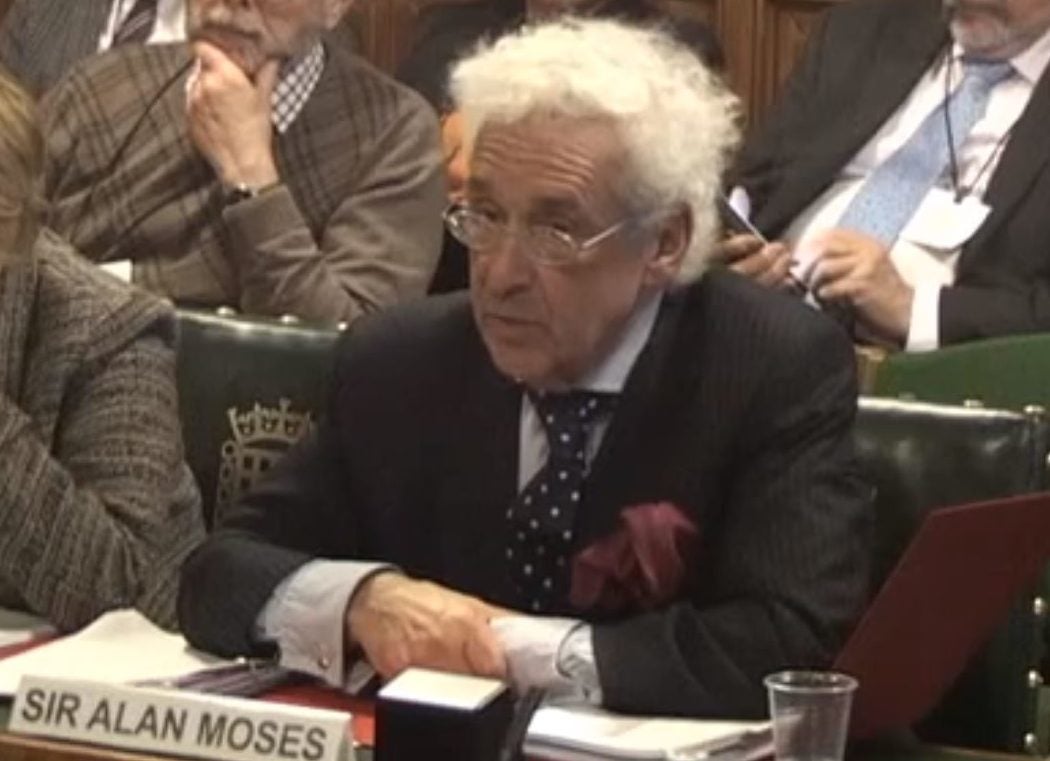
The Independent Press Standards Organisation has successfully defended a judicial review at the High Court, the first to be brought against the press regulator, over its handling of complaints.
IPSO was challenged by Jonathan Coulter, 69, who accused it of putting “the interests of the industry before those of the public” in handling complaints.
The High Court proceedings, which started on April 17, were dubbed a “ground-breaking challenge to IPSO” by press reform group Hacked Off.
Coulter was one of 30 people who complained to IPSO about three articles, published in 2016, reporting controversial comments made by peer Baroness Tonge at a House of Lords event she had been chairing.
They comprised:
- “Jews blamed for Holocaust at ‘shameful’ House of Lords event,” by Dominic Kennedy, published in The Times on 27 October 2016
- “Tonge’s obnoxious ideas on Jews set a terrible example,” by David Aaronovitch, published in The Times on 28 October 2016
- “Peace be upon Israel – the Lib Dems have cut off their Tonge,” by Rod Liddle, published in The Sunday Times on 30 October 2016.
Coulter and 29 signatories complained to IPSO that the articles represented “gross misreporting” and contained factual inaccuracies, including unjustified and unfair accusations against Baroness Tonge.
The complaints were not upheld by IPSO, prompting Coulter to launch a crowdfunding page raising more than £30,000 to bring a judicial review against the press regulator over its handling of the complaints.
On the funding page Coulter claimed IPSO had rejected the complaint because it was brought by a third party complainant (one not directly concerned in the story).
Coulter said that in so doing, IPSO had allowed “misleading and inaccurate information” to appear as long as it was under the heading of “opinion”.
He added that IPSO refused to consider evidence “favourable to complainants” and employed “irrational decision making” in its rulings.
Under guidance on its website about who can complain to IPSO, the regulator says it may not take on a complaint from a third party “where an inaccuracy relates to a specific individual or organisation”.
In 2016, IPSO was unable to deal with 3,310 third party complaints.
In his judgement today on Coulter’s claims, Mr Justice Warby said he agreed with the findings of the IPSO Complaints Committee that there was “nothing substantively misleading about the passages complained
of” and said “sufficient care had been taken” by IPSO in handling them.
He said it “was a rational decision, within the scope of the discretion given to IPSO” and said the regulator’s decision not to consider the complaints “was not a breach of any duty of inquiry” and had been “lawful”.
He added: “The Committee’s approach to the inaccuracy complaints did not involve the errors of principle alleged by the claimant.
“Its decisions do not betray confusion over what can and cannot count as opinion, and were legitimate. Its approach to inaccuracy was not wrong in principle.”
IPSO chairman Sir Alan Moses said: “The High Court dismissed the main argument challenging IPSO’s procedures and decisions as fallacious.
“The importance of the Court’s decision is that it endorses and underlines the rationality and fairness of IPSO’s procedures and the care and conscientiousness with which it’s Complaints Committee reached its decisions.”
In his response to the ruling, Coulter said: “The judge’s ruling confirms that IPSO’s rules give it wide discretion to pick and choose [complaints] on spurious grounds.
“IPSO often filters out complaints… irrespective of how conclusively the evidence shows that the code may have been breached, making a mockery of the idea that this is a regulator seeking to ensure consistent respect for the industry code of practice.”
IPSO’s annual report shows that in 2016 it received over 14,000 complaints and deemed that it was unable to deal with 12,602 of them.
Picture: ParliamentTV/Screenshot
Email pged@pressgazette.co.uk to point out mistakes, provide story tips or send in a letter for publication on our "Letters Page" blog
